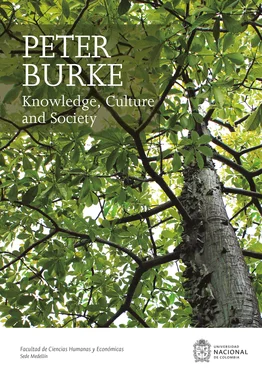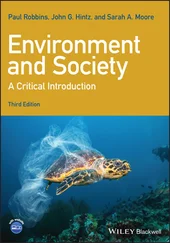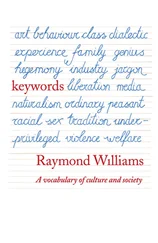That’s why this type of knowledge can conceive a better reality, adapted to our needs (progress):
[…] the one who has penetrated the secret of plants can produce new plants, more fertile and nutritive; the one who has understood natural selection can institute artificial selection. […] Knowledge of what exists leads to technique, which enables the fabrication of an improved existent.
[… But] what is a better animal or plant species? How to judge a landscape superior to another? By which criteria do we decide which political regime would be preferable to the existing one? […]. Scientificism consists, effectively, in founding, on top of what we believe to be the results of science, a form of ethics and politics. In other words, science, or what is perceived as such, stops being simple knowledge about the existing world to become a generator of values, in the same way as a religion; it can, therefore, guide political and moral actions. 27
Its results are universal, valid for all, since they determine the “objective laws of the real” that can be put in place by its supporters to guide the world at their will. That is, extending Todorov’s reflections a bit more, what all forms of colonialism and neo-colonialism have done all around the world to a certain extent since the Modern Age.
We have, then, a plurality of rationalities, logics, ways of thinking and living the world and the experience that includes all the other-rationalities unrecognized by a part of western university knowledge and systemized in a type of knowledge, that I would define as a diverse cognitive apparatus composed of parts of varied species, such as representations, practices, observations about the world, ways of acting and of know-how, discourses, institutions…, that come into play in particular cultures. That’s why these reflections become more pertinent today, when transnational population migrations confront us with a new encounter of worlds – an uneven encounter of knowledge and experiences of life and the world 28– just like in the early Modern Age, when, as today, there were misunderstandings, disagreements and fear towards the other-one. 29
And it’s here where, as I see it, cultural analysis 30turns out to be productive for the study of knowledge and its production, beyond discussions of whether we should conduct an internalist or an externalist history of science, and of whether epistemology, philosophy, history or sociology are more convenient; a debate, I consider, we should have already left behind. German cultural critique, as we could name it, had already used this type of analysis to account for thought phenomena. It is sufficient to mention three relevant cases, situated at the transition from the 19th to the 20th century: Wilhelm Dilthey, Ernst Cassirer and Karl Mannheim. All three contributed to establishing the foundations of the forthcoming analysis of the then called Human Sciences (Geisteswissenschaften), for which Dilthey established epistemological principles, besides laying out important stepping stones for contemporary hermeneutics. 31
We could say that reflections on culture have taken place within two great traditions that, although not unique, are the most outstanding and, more importantly, most sustained over time, and from which a large part of current studies are derived: the tradition of studies, history, philosophy and sociology of culture, and the German cultural critique (including the Volkskunde), which can be traced back to the18th century, and the so-called cultural and social anthropology, with all its derivatives.
As for the first tradition, 32it’s important to emphasize that the terms “cultural studies” and “cultural history”, “Volk” (people, folk, nation) and “popular”, as well as these perspectives, were already being used in the German academic field during the transition from the 18th to the 19th century by men as important as Johan Christoph Adelung, with his Versuch einer Geschichte der Kultur des Menschlichen Geschlechts (“Essay in a history of the culture of the human race”, Leipzig 1782); 33Johann Gottfried Eichhorn and his General History of Culture and Literature of the New Europe (1796-9), 34, and of Johann Gottfried von Herder, Kant’s student, whose work lies at the foundation of modern culture studies. In this sense, his most important work was Ideen zur Philosophie der Geschichte der Menschheit (“Ideas for a Philosophy of the History of Mankind”, Riga 1784-1791).
Adelung introduced the term “cultural history” to the German language; the term “culture” had been settling on during the 18th century, but only with Herder can it be said that the concept of culture has the implications that it has today. As Isaiah Berlin ascertained, Herder didn’t share the theory of progress; on the contrary, he thought about and emphasized diversity, particularity, and incomparability of cultures; he was against classifying people by race (and against the consequent racism it introduced), against colonialism and slavery. To this we must add the role he assigned to each culture’s own historicity, and the role of language, which granted each of them a unique quality. He highlighted the importance of objective as well as subjective aspects of culture. For him, culture is composed of creative processes as much as of objects. Science, technique, education, training (Bildung), arts, language, writing, religion, customs, rules and political, economic and judicial systems, are all part of culture. 35Herder’s thought lies at the foundation of later works: those by Gustav Klemm, Jacob Burckhardt, Wilhelm Dilthey… or those by Johann Gottlieb Fichte, Georg Friedrich Hegel and many others, and, partly, of all of our works.
Even if there isn’t a continuity thread, this tradition was carried on throughout the 19th century by Jacob Burckhardt and Karl Lamprecht, among others, and during the early 20th century by Johan Huizinga, who gained his doctorate in Germany, where he participated in an exchange with the latter (by then a Professor in Leipzig) 36and with Henri Pirenne, who completed his doctorate alongside the former. We might dare to say that, at the beginning of History, as an academic discipline, cultural history had a prominent presence, also if we think about a literate like Voltaire, who, despite not using the term culture, did refer to the human “spirit” and dedicated a text to manners (Essai sur les mœurs et l’esprit des nations [1756]). We can’t forget that History is the discipline chosen by the Enlightenment to be the reasoned philosophical science that will account for the progress of the spirit of nations 37or, if we think, later, about cultural analysis among historians such as Marc Bloch (The Magic-Working Kings) and even Lucien Fevbre (his works about Rabelais, Luther and Erasmus…).
As for the second tradition, I would like to briefly emphasize three moments and two authors, important for the recognition of knowledge and, in general, of cultures of subordinate groups and non-Western nations. The first is Gustav Friedrich Klemm, who was credited by the Encyclopaedia Britannica with the development of the “culture” concept; a definition that was later adopted by Edward Burnett Tylor, and that, with time, was established as canonical for decades. He was also recognized for his ethnographic collection, which became a model to others. 38The second, a German immigrant to the United States, Franz Boas, considered one of the pillars of American Cultural Anthropology, established in 1920 a set of basic principles that confronted evolutionist interpretations and the hierarchical organization of cultures: cultural aspects of human behaviour and manners are acquired by learning, through unconscious processes; all cultures have their own development and history, which respond to their own priorities and needs, so none of them is better, nor more or less primitive than any other and, consequently, each culture must be interpreted by analysing its internal elements; an idea directly against evolutionist stances, 39still in vogue today. About the third, Edward E. Evans-Pritchard, we will make a brief mention further on.
Читать дальше












